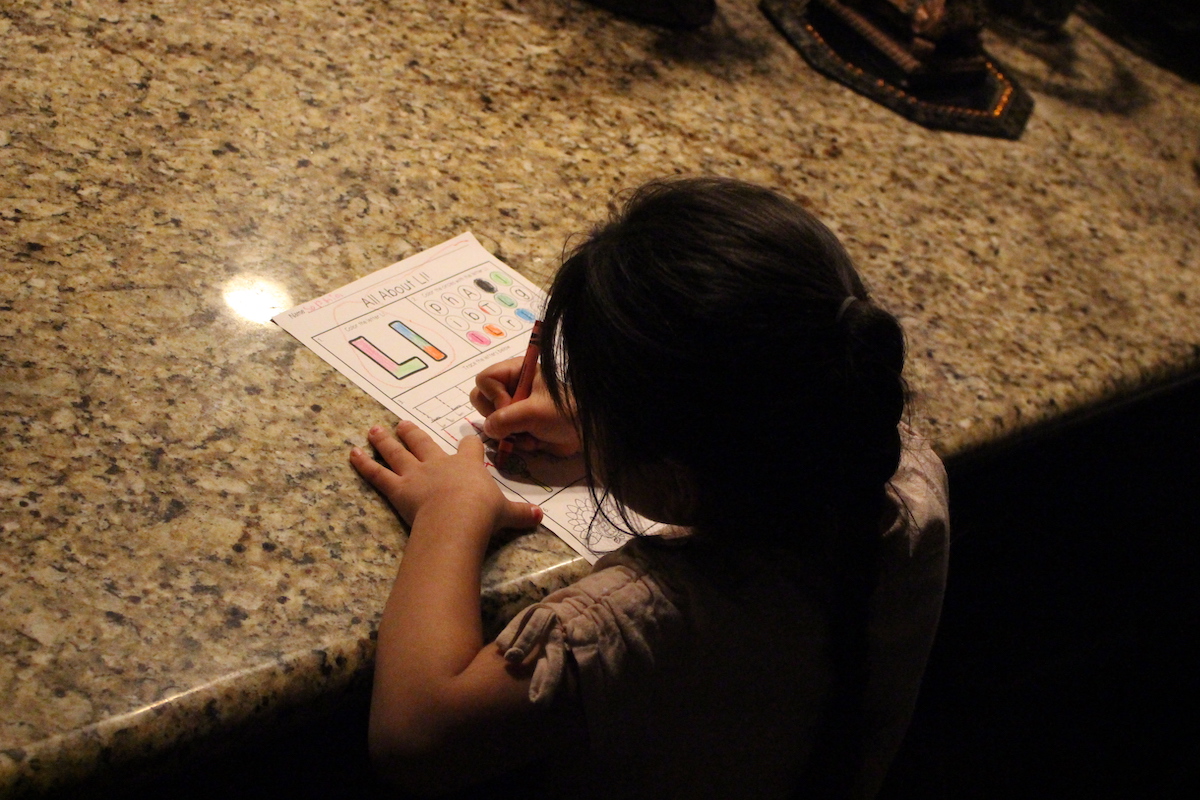

(Photo by Vanessa Delgado)
IRVINE, California — In a matter of weeks, COVID-19 has completely upended students’ lives. Parents with children in K-12 are scrambling to find a balance between their work obligations, household responsibilities, and their child’s education. Many parents have turned to social media to vent about the challenges of creating a conductive learning environment for their children. Some have shared how they have used their resources to homeschool their children, many encourage their children to complete any assigned homework, and others —who are understandably drained— have turned to YouTube Kids to stimulate their youngster’s attention.
Yet for children of immigrants, learning from home comes with several challenges.
A number of studies suggest that language barriers can limit the ways that immigrant parents help their children with their homework assignments. School closures due to COVID-19 have motivated some teachers to assign virtual schoolwork so students can continue their learning. However, completing assignments at home may leave many children of immigrants with the frustrating task of navigating schoolwork with little to no help at home. Parents who want to help may face difficulties with encouraging their children to complete their schoolwork because they do not have the language skills to walk them through the assignments or the familiarity of the US educational system.
When parents cannot help, youth turn to their older siblings for guidance. In my research, I find that older siblings help decode the hidden curriculum of education as they encourage their siblings to complete assignments and reward them for doing their work. Parents and older siblings work together with the younger kin to motivate them to complete their schoolwork. This extra labor older siblings provide does come at some cost. Older siblings may feel frustrated when their younger brothers or sisters do not take their advice or push back on their help. Tensions can also emerge when parents force older siblings to help and younger kin appear to be unmotivated or “lazy.” In many immigrant families, older siblings will bear the responsibility of homeschooling their younger siblings.
Completing schoolwork also requires stable internet—a tool that is not readily accessible for some immigrant families. The majority of low-income immigrant families are under-connected to internet and usually rely on mobile devices with data limits to surf the web. Any assignments that must be completed or turned in electronically, may be an additional stressor for immigrant families who cannot afford steady internet access.
Keeping up with schoolwork will also reveal the stratified experiences of immigrant families. While some may be able to keep up with the daily changes under this pandemic and eventually ease into a “new normal,” other immigrant families face devastating uncertainties. Consider undocumented families who still face detention, deportation, and threats against Deferred Action for Childhood Arrivals (DACA). Or members of low-income immigrant families with essential workers who risk their lives every day. Youth from immigrant families who face inequalities will have a lot more on their minds than completing homework.
Meaningful learning requires a stable environment. How can students complete their assignments when their parents have lost their job? When deportations are still taking place? When loved ones who are essential workers cannot get protections from their employers? When financial assistance programs exclude undocumented immigrants? Or simply knowing that the virus is taking the lives of communities of color at higher rates? COVID-19 is exposing and amplifying the educational inequalities that many children from immigrant families face.
As we continue in our quarantine, we must ask ourselves: How will school closures exacerbate educational inequalities for children of immigrants?
As educators, we have the power to be supportive and compassionate towards our students, but we must also recognize the structural challenges that lie ahead for our most vulnerable students. Alleviating these inequalities will require a shift in our educational system that emphasizes empathy but also acknowledges how systematic inequalities generate advantages and disadvantages among students.
***
Vanessa Delgado is a PhD Candidate in the Department of Sociology at UC, Irvine. Her research explores how children of immigrants serve as language, cultural, and legal brokers. Twitter: @VanessaD015.



[…] demographic differences within the Latinx community, it is necessary to highlight the challenges immigrant families have confronted in attempting to support their […]